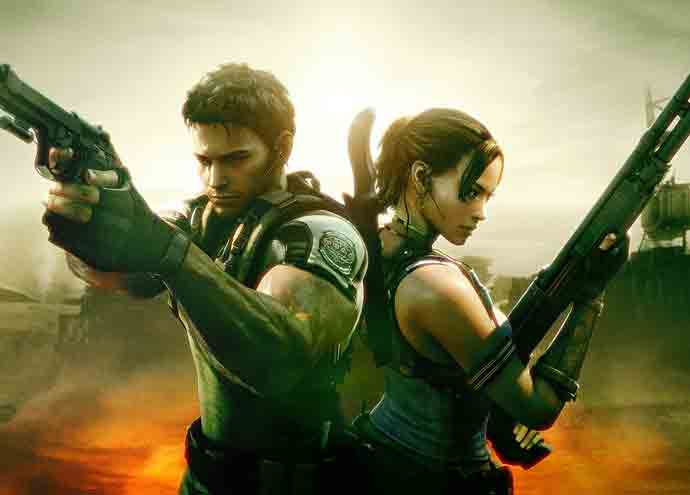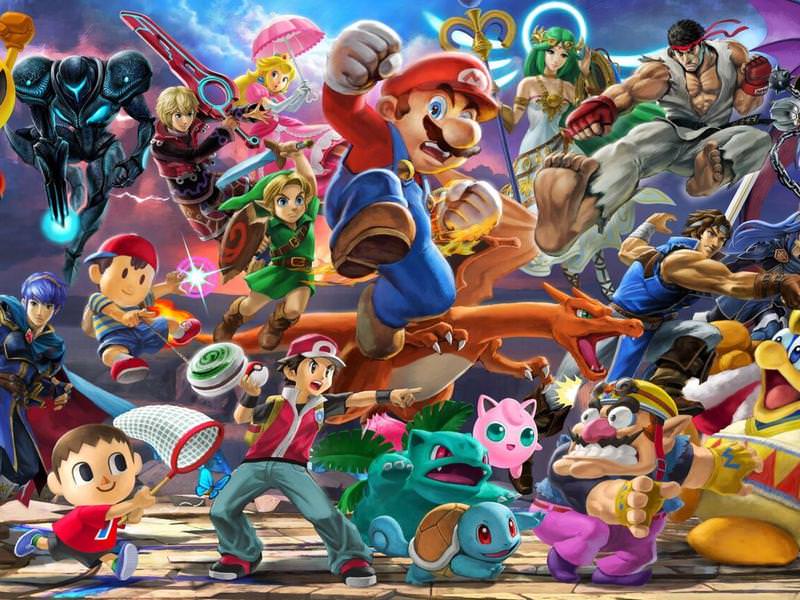‘Resident Evil 5’ Retrospective: ‘Heart Of Darkness’ With No Heart, But With Guns

Resident Evil 5 (Capcom)
The Resident Evil renaissance is upon us. With Resident Evil Village coming next month and 2019’s masterful Resident Evil 2 in recent memory, the series is experiencing a thought-impossible peak after what many fans called “the dark years” early last decade. As RE continues to reinvent itself, a buddy and I decided to revisit one of the series’ most divisive games, Resident Evil 5.
I played Resident Evil 5 near its 2009 release as a fresh-eyed RE fan having played most of the mainline games already. Resident Evil 4 was, and still is, the runaway king of the series, never to be topped and never to be removed from its deity-like status. What I found in my recent run of RE 5 is that there are some choice similarities between RE 4 and RE 5 that didn’t resonate with me my first time playing the game.
Both games have remarkably similar gameplay. While I played on PC this time around, I can still vouch that the controls in RE 5 are a near copy of its predecessor’s. Why, then, are the games seen as god-king and black sheep respectively? I’ve found that RE 5 has an inconsistent tone, which makes the overall experience harder to swallow compared to the James Bond-like story of Resident Evil 4.
Resident Evil 5 is remarkably similar to Heart of Darkness in presentation. The game’s tone is similarly tense and hopeless as well. The game’s mainstay protagonist Chris Redfield, also, is a fitting Marlow as his interest in the indigenous people being turned to the slaughter is only pressing when convenient to the story. Compared to Leon Kennedy, whose infinite suave and airiness kept Resident Evil 4 alive, Chris weighs down the African adventure with boring writing and a faux-gravitas that does not compute in a game about mutant fish and Neo-lookalikes. The big-armed hunk is a void of personality whose dialogue is painfully objective compared to the smooth-talking Leon.
Resident Evil 4 plays into the game’s more goofy, B-movie elements by making Leon a ladies man never short a one-liner; the game cultivated an identity and personality. Resident Evil 5, however, doesn’t know what it is. Chris is deadly serious sandbag and the game’s opening is sufficiently dreary and tense, exploring the dilapidated African village. The game then expects players, however, to maintain that seriousness as you battle giant fish and a spaghetti monster. The B-movie glue that held Resident Evil 4 together is nowhere to be seen in Resident Evil 5.
What saves Resident Evil 5, however, is the co-op mode. The game’s bad dialogue and goofy fights become its armor when you can laugh it off with a friend. During my time with Resident Evil 5, I had very little complaints about the gameplay, minus some tedious ruins sections. My concerns with the 12-year-old game lies with the precedent it set for the series. Chris’s stone-faced attitude bleeds into almost every character in Resident Evil 6 like a plague, even the one ineffable Leon becomes a shell of his former, witty self.
If Resident Evil 5 missed a mark, that mark is identity and tone. A game where you cut down mutant spaghetti monsters named after heavy-metal albums cannot be played straight like it is in Resident Evil 5. The game’s lack of humor or wittiness left my friend and I chuckling at the game’s expense rather than cheering on the madness in Resident Evil 4.





